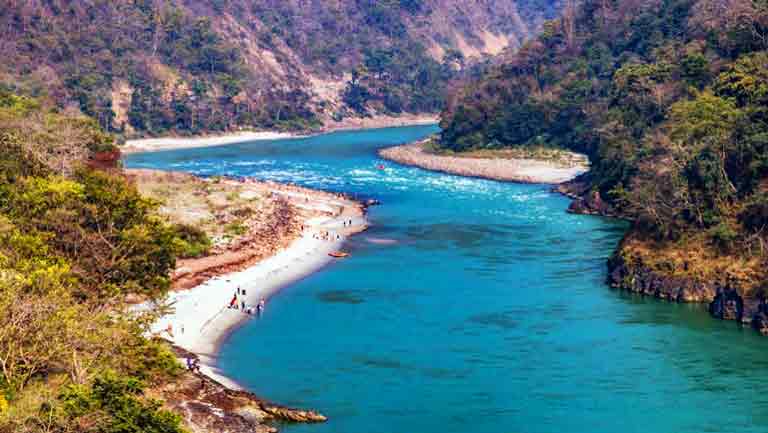Wren and Martin Comprehension Exercise 147
Then one day there passed by that way a Pashupata ascetic. And he said to the Brahman: “My son, what are you doing here ?” So he replied: “Reverend Sir, I am performing penance, for the expiation of sin, on the banks of the Ganges.” Then the ascetic said:”What has this miserable puddle to do with the Ganges,” And the Brahman said :”Is this, then, not the Ganges ?” And the ascetic laughed in his face, and said .’Truly, old as I am, I did not think that there had been folly like this in the world. Wretched man, who has deluded you ? The Ganges is hundreds of miles away, and resembles this contemptible brook no more than Mount Meru resembles an ant-hill.’ Then the Brahman said :”Reverend Sir, I am much obliged to you.” And taking his pot and staff, he went forward, till at length he came to a broad river. And he rejoiced greatly, saying: “This must be the sacred Ganges.” So he settled on its banks and remained there for five years, bathing every day in its waters. Then one day there came by a Kapalika, who said to him, “Why do you remain here, wasting precious time over a river of no account or sanctity, instead of going to the Ganges ?” But the Brahman was amazed, and said; “And is this, then, not the Ganges ?” Then the Kapalika replied -.”This is the Ganges! Is a jackal a lion or a Chandala a Brahman ? Sir, you are dreaming.” Then the Brahman sighed deeply. And he said, “Sir, I am enlightened by you.” And he took his pot and staff, and went forward.
But he was now very old and feeble. And long penance had weakened his frame and exhausted his energies. And as he toiled on in the heat of the day over the burning earth, the sun beat on his head like the thunderbolt of Indra, and struck him with fever. Still he gathered himself together and struggled on, growing weaker and weaker day by day, till at last he got no further, but fell down and lay dying on the ground. But collecting all his remaining strength, with a last desperate effort he dragged himself up a low hill in front of him. And lo! there before him rolled the mighty stream of Ganges, with countless numbers of pilgrims doing penance on its banks and bathing in its stream. And in his agony he cried aloud : “O Mother Ganges ! alas ! alas ! I have pursued you all my life and now I die here helpless in sight of you.” So his heart broke, and he never reached its shore.
-F.W. Bain
1. Explain the allusion to Mount Meru and the comparison between it and an ant-hill. What was “the thunderbolt of Indra” ?
The Ganges, famous and popular and holy river, was like a Mount Meru, enormous. Thus, the Ganges is called as Mount Meru. “Thunderbolt of Indra” means the Sun was shining brightly.
2. What is a “Pashupata” ascetic, a Kapalika or a Chandala ?
A Pashupata ascetic is a simple person who follows Pashupata. Kapalika is non-Puranic form of Shaivism in India. A Chandala is a person who deals with the disposal of corpses, usually lower caste.
3. What do you suppose is the intention of the author in telling this very sad story ? Quote phrases from the text to show the pathos.
We should learn from this story the importance of dedication to achieve goal. Dedication and perseverance is vital to succeed in life.
4. Comment on the significance and the author’s use of the following expressions:-
(a) “This is the Ganges ! Is a jackal a lion —?”
(b) “O Mother Ganges ! alas ! alas !”
A lion is an epitome of strength. A jackal, though strong, is nowhere comparable to a lion. Using this comparison as a metaphor, Kapalika tells the Brahman that the part of the river he is wasting time over has no account or sanctity and should proceed to the real Ganges.
Brahmin, when at the door of his death, calls out the Ganges personifying it as his mother and expresses his agony for dying helpless in sight of it.
5. What is the purpose of the words : “Reverend Sir, I am performing penance, for the expiation of sin.
The Brahman is a courteous man, as he addresses the Pashupata with a “Reverend Sir” title. Further, he is repentant for any sins he may have committed and has a strong desire to perform penance at the Ganges for the expiation of sin.






